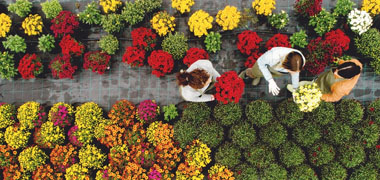
AI Occupational Exposure score unavailable For more insight, research the specific tasks and skills required for the role.
Explore all careersAgronomists work with farmers to improve crop quality, collect data, analyze issues, and suggest solutions to enhance production and crop health.
Get qualified to work as an Agronomist with a course recognised across Australia. Speak to a training provider to learn more.
Browse occupations related to Agronomist
In Australia, a full time Agronomist generally earns $1,730 per week ($89,960 annual salary) before tax. This is a median figure for full-time employees and should be considered a guide only. As you gain more experience you can expect a potentially higher salary than people who are new to the industry.
 Courses.com.au Team
Courses.com.au Team
There are currently 1,700 people working as an Agronomist in Australia. This number has dropped slightly over the last five years. Agronomy work is usually found in rural areas of Australia where agriculture is common.
Source: Australian Government Labour Market Insights
 Courses.com.au Team
Courses.com.au Team
If you’re thinking of becoming an Agronomist consider a Diploma of Agronomy. This two year course covers all aspects of soil management and crop production. A Diploma of Agriculture may also be suitable.
 Courses.com.au Team
Courses.com.au Team



An Agronomist works with farmers to improve the quality of their crop or livestock. You’ll analyse agricultural production to observe problem issues and identify areas of concern. You might collect samples from the field or record data for analysis. An Agronomist may examine current research and provide advice on possible solutions. You’ll look at a range of possible scenarios to improve production and ensure future crops are healthy.
Agronomists work closely with farmers and agricultural researchers so you’ll need to be good with people and able to communicate effectively. You’ll need good analytical skills and excellent attention to detail. You’ll need to be comfortable working outdoors but you’ll also need to be able to operate office technology. Agronomists need a strong understanding of the agricultural industry and should be able to interpret new research.